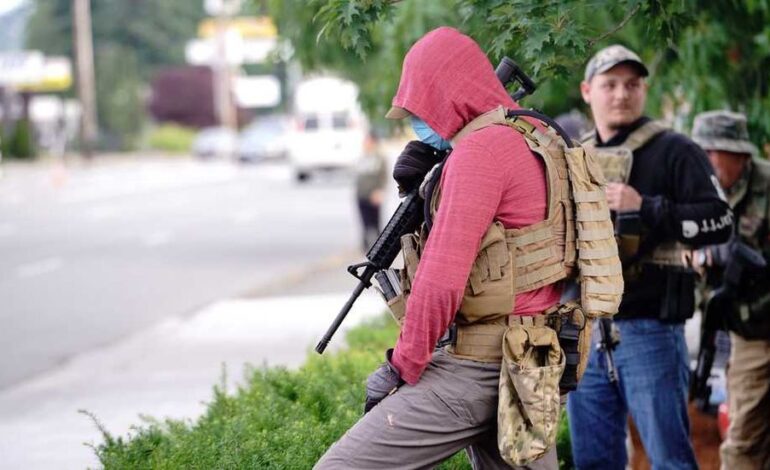Europeans Fear U.S. Armed Uprising Amid Political Tensions

Concerns are rising in Europe regarding the potential for an armed uprising in the United States. According to a report by Andrew Buncombe for The i Paper, many Europeans fear that ongoing political tensions could lead to a second Civil War. The assassination of MAGA activist Charlie Kirk has intensified calls for an end to political violence and the aggressive rhetoric that has fueled it.
In response to Kirk’s death, former President Donald Trump attributed much of the political violence to the “radical left.” He stated, “[Kirk] did not hate his opponents, he wanted the best for them. That’s where I disagreed with Charlie. I hate my opponents, and I don’t want the best for them, I’m sorry.” These comments have drawn attention to broader issues surrounding political discourse in the U.S.
Buncombe highlights that British audiences are already aware of escalating violence, including incidents such as an attack on Minnesota legislators and an arson attack at the home of Pennsylvania Governor Josh Shapiro in April. Following Kirk’s assassination, Trump suggested deploying federal troops to cities like Chicago and Portland, and even threatened to send military forces into New York. This proposal has sparked backlash from state leaders, including Illinois Governor JB Pritzker, who accused Trump of attempting to create chaos and leverage the Insurrection Act to justify military intervention.
The Insurrection Act allows the President to call up federal troops to quell domestic unrest, which raises concerns about the potential for misuse. As Buncombe notes, “an armed uprising” is increasingly viewed as a distinct possibility.
Benjamin Jensen, a senior fellow at the Centre for Strategic and International Studies, provides context to these fears by referencing a modern scholarly definition of civil war, which typically involves at least 1,000 fatalities. He suggests that a more likely scenario could resemble the 1791 Whiskey Rebellion, characterized by sporadic violence rather than organized conflict. Jensen predicts that such unrest may manifest through “sporadic acts of violence that will not be neatly defined by right or left.”
Political analysts are contemplating the conditions under which violence might escalate. Joel Busher, a professor of political sociology at Coventry University, posits that a significant trigger could be if Republican leaders refuse to accept the outcome of future elections. He questions, “Would they accept the result and support the process of democratic transition?” Busher warns that if senior Republicans do not condemn violence from decentralized armed groups, the U.S. could be on a path toward civil strife.
As tensions mount, the implications of political violence and civil unrest loom large over the American landscape. The situation remains fluid, and observers around the world are keenly watching how these dynamics unfold.






